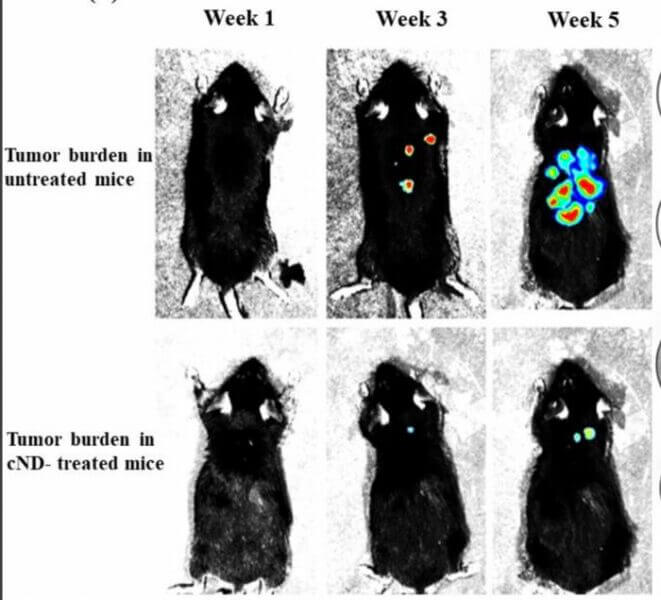Nanodiamonds are 2-8 nm carbon nanoparticles, which can be easily functionalized with various chemical groups like carboxylic groups or drugs.
Previous research has shown that actively dividing cells are more likely to absorb nanodiamonds and that epithelial cells treated with carboxylic nanodiamonds lose the ability to migrate across cell permeable cellulose membranes.
Rajiv K. Saxena and colleagues explored whether nanodiamonds might block tumor metastasis, a process that requires cell migration to new areas. The authors treated B16F10 melanoma cells with carboxylic nanodiamonds in culture and tested their ability to migrate and invade across polycarbonate membranes with 8-µm pores.
The authors found that the nano-diamonds blocked the ability of melanoma cells to migrate, while untreated tumor cells were able to pass through the membrane. Mice (C57Bl/6) administered B16F10 melanoma tumor cells and then treated with carboxylic nanodiamonds showed little or no metastasis of tumors, while untreated mice saw their tumors grow and move to new areas of the body.
Survival of the tumor-bearing mice treated with carboxylic nanodiamonds was also significantly better than untreated tumor-bearing mice. Based on gene expression evidence, the authors hypothesize that the tiny carbon nanodiamonds may inhibit the breaking away of cancer cells from the primary tumor mass—as well as block subsequent steps of metastasis such as physical movement of cells and their ability to enter blood vessels.
According to the authors, nanodiamonds should be further explored as a possible therapeutic agent for cancer metastasis.


